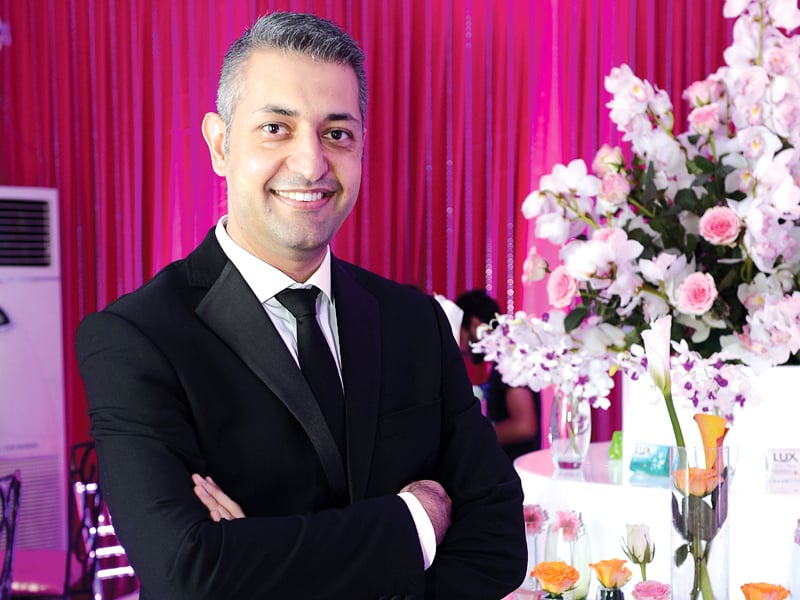
Among the marketing techniques that helm the global corporate industry, visual and auditory information is often used to pivot consumers towards a product. The toiletries industry, in large part, focuses on evoking an olfactory response from its target audience.
Careful thought and detail go into creating fragrances for personal care items, an art that not many are acquainted with. The Express Tribune talks to Ali Aksoy, Regional Director of Firmenich, an international producer of perfumery and flavour chemicals.

“There is a major difference between the concept of fine fragrances and soap bar fragrances,” says Aksoy. “Soap fragrances are generally fresh and clean and even when we manufacture a finer range of fragrances, the undertones have to be just that. He explains that initially, fragrances were added to soaps to simply cut their industrial smell, which can be overbearing, but “nowadays, things have changed and companies want to use fragrances to sell an ideology... the concept behind the soap.”
Aksoy states, “If five soap bars with the exact same chemical consistency are placed, the consumer will go with the one that smells the best to them and [will base their decision on] how they want to feel when they use is.” While woody and aquatic notes are a men’s favourite, it is no surprise that floral and oriental notes are used in women’s soaps.
“There is a real science behind making fragrances for soaps,” explains Aksoy. “One has to obey the regulations of the International Fragrance Regulatory Association (IFRA). There are ingredients, such as nitro musk and tea tree oils, which are harmful for the skin and cannot be used.”
Aksoy also comments on the technical and emotional part of the distinct process of perfume selection for products. Once the company acquires the base soap, they analyse it and understand the make-up of the chemicals used in producing the soap. Then, it is critical to understand the concept of the soap, the colour, and what a particular brand is trying to sell.
“For instance, when we are creating a scent for Lifebuoy, [we have to keep in mind that] the concept behind the soap is [elevating] hygiene,” he explains. Adding, “So, the scent has to be fresh and clean, and has to allow the medicinal part of the soap to be highlighted, which helps drive the brand.”

Aksoy further states that when a fragrance is being created for the brand Lux, the emotions it needs to evoke are those of luxury, romance and elegance. “There is a similar course of men’s scents. Clear Men shampoo has a muscular fragrance, which induces a sense of confidence and power,” he shares.
Each brand has its own ideology and caters to a different segment of the market, and fragrances play a major role in allowing the industry to achieve its goals and market products the way it wants to. “It takes up to eight months to develop and understand the concept and then create [the fragrance],” he holds.
Of the limitations in terms of creating fragrances for soaps, he comments that there are many. “The biggest [limitation] is the budget. One can’t use precious scents because of the cost of the raw materials, so we have to make do with the best available products that are within the clients’ budgets,” explains Aksoy.
Published in The Express Tribune, November 6th, 2014.
Like Life & Style on Facebook, follow @ETLifeandStyle on Twitter for the latest in fashion, gossip and entertainment.
COMMENTS (3)
Comments are moderated and generally will be posted if they are on-topic and not abusive.
For more information, please see our Comments FAQ

1731916090-0/sabrina-(3)1731916090-0-165x106.webp)


1732020599-0/BeFunky-collage-(73)1732020599-0-165x106.webp)



1724319076-0/Untitled-design-(5)1724319076-0-270x192.webp)








Nice write up. More and more international traveling and interest in fine living and now being expat for many years I realized Pakistani men are now getting away from fine living. Even grooming of celebrities could not impress me.
A very interesting piece.
It's often underestimated how brutal and challenging the 'functional' frangance industry can be. Fine fragrance perfumers, on the other hand, have the benefit of a budget that is luxurious compared to these (though that has been shrinking for some time). Interestingly, some of the finest luxury perfumers initially began with soap fragrance (see Jean-Michel Duriez at Patou)
Good article/profile, Momina!